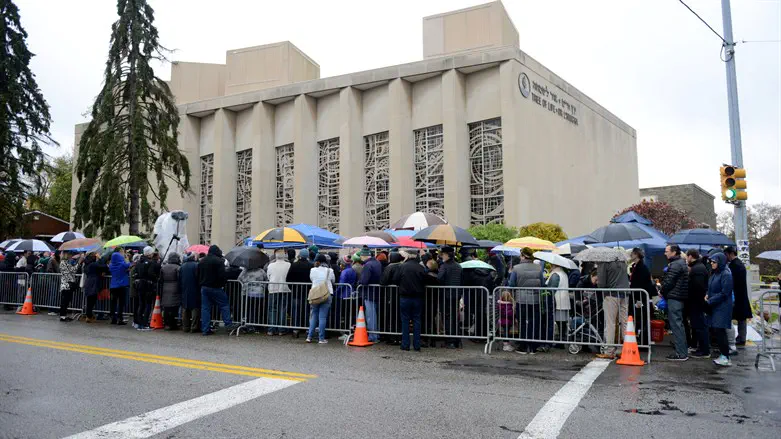
The jury considering whether to give a death sentence to the Pittsburgh synagogue shooter on Tuesday asked to see his weapons, JTA reported.
The request was a signal that the jury is proceeding to its final verdict in the trial, which has lasted for two months.
In the aftermath of the jury’s viewing of the weapons, which took less than 10 minutes, Judge Robert Colville discussed with the lawyers how sentencing should proceed on Wednesday, according to JTA.
That prompted an alarmed protest from Judy Clark, the chief defense lawyer for Robert Bowers, who said, “I think we should wait for the verdict, your honor.”
It is not clear why the jury wanted to see the weapons, but in weighing a death sentence, one of the statutory aggravating factors jurors must consider is the risk the gunman’s attack posed to others.
Bowers was convicted in June on 63 counts in connection with the October 27, 2018 massacre. Later, a federal jury announced that he is eligible to receive the death penalty.
Bowers entered the synagogue carrying three Glock pistols and an AR-15 rifle. Prosecutors have argued that the recklessness and breadth of the attack posed risks to others in the Tree of Life synagogue building, which housed three congregations, and to law enforcement.
The jurors asked a US Marshall present where the shooter was carrying his handguns, how to load an AR-15 and whether a magazine on display was for the AR-15.
The weapons were loaded into six cardboard boxes and placed on a table near the jury box and were not visible to observers in the courtroom. Colville ordered white noise to be played so observers could not hear the jurors chat among themselves.
The jurors seemed animated, pointing at the weapons, at times smiling. It’s not clear which weapons and ammunition were on display; the gunman left additional weapons and ammunition in his car on the day of the attack.
Trying to persuade jurors to spare his life, the defense said Bowers has a family history of mental illness and has introduced evidence that his father, Randall Bowers, was diagnosed with schizophrenia.
Lawyers for Bowers had argued previously that the gunman had psychotic, delusional and paranoid symptoms that made him unable to understand the world or make appropriate decisions.

